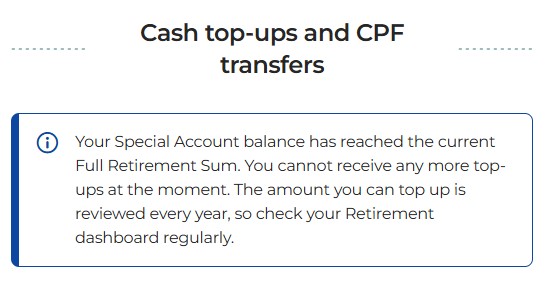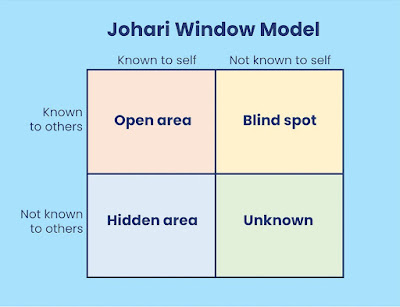In today’s career coaching session, we dove into two self-assessment tools: the RIASEC model and the Johari Window. These frameworks help me better understand my vocational personalities, strengths, and how I am perceived in professional settings.
Understanding the RIASEC Model
The RIASEC model, developed by psychologist John Holland, categorizes people into six personality types based on their interests and preferences in work-related activities. These types are:
- Realistic: Practical, hands-on individuals who enjoy working with tools, machines, or physical tasks. Think mechanics, engineers, or farmers.
- Investigative: Analytical, curious problem-solvers who thrive in research, science, or technical fields.
- Artistic: Creative, expressive individuals drawn to art, music, writing, or design.
- Social: People-oriented individuals who enjoy helping, teaching, or collaborating. Common roles include teachers, counselors, or healthcare professionals.
- Enterprising: Confident, persuasive leaders who excel in business, sales, or management.
- Conventional: Detail-oriented, organized individuals who prefer structured environments like accounting, administration, or data management.
Understanding the RIASEC profile helps clarify which work roles, tasks, and environments align with my natural inclinations. This self-awareness supposed to help in choosing a career path that feels fulfilling and plays to my strengths.

My RIASEC Results
My RIASEC assessment revealed that my top career interests are Conventional, Investigative, and Artistic. At first glance, this combination felt a bit contradictory.
Conventional: I scored high here, which suggests I thrive in structured, organized environments. I don’t enjoy data management or accounting (who does, really?), but I love having clear processes and systems in place, especially in my project management work. This makes sense—structure helps me clear my mind and priortise while managing complex tasks.
Investigative: This aligns perfectly with my current role that deal with R&D projects, where I collaborate with scientists and tackle complex problems. I’ve always been curious and enjoy diving into the “why” behind things, so this result feels spot-on.
Artistic: No surprise here! I’ve always been drawn to creative tasks, whether it’s designing presentations, brainstorming innovative solutions, or finding new ways to communicate ideas. This creative streak complements my investigative side, even if they seem like an odd pair.
The most surprising result was my Skills Confidence in Artistic, Conventional, and Enterprising areas. I expected Artistic and Conventional, but Enterprising threw me off. Enterprising types are confident, persuasive, and leadership-oriented—qualities I don’t immediately associate with myself. I’ve never seen myself as a natural salesperson or someone who thrives on persuading others. However, reflecting on my project management role, I can see how I’ve had to rally teams, pitch ideas, and take charge of initiatives. Maybe there’s an enterprising spark in me after all?
What About My Work Values?
The RIASEC assessment also highlighted my core work values: Lifestyle, Co-Workers, and Independence.
Lifestyle: This value indicates that I prioritise a career that supports my desired way of living. For me, this means having flexibility to balance work with personal interests, such as time for creative hobbies or family. A job that demands constant overtime or rigid hours might not suit me, even if it aligns with my skills.
Co-Workers: I value positive, collaborative relationships in the workplace. Working with supportive, like-minded colleagues who share ideas and foster a sense of community is important to me. This explains why I enjoy my current role, where I collaborate closely with scientists and other team members.
Independence: This value reflects my preference for autonomy in my work. I thrive when I have the freedom to make decisions, set my own pace, and approach tasks in my own way. While I enjoy collaboration, I also need space to think creatively and work independently.
Together, these values suggest I’m looking for a career that offers flexibility, strong team dynamics, and room to take ownership of my work.
The Johari Window: A Complementary Perspective
While RIASEC focuses on vocational interests and values, the Johari Window is a tool for understanding how we perceive ourselves and how others perceive us. It’s a grid divided into four quadrants:
- Open Area: Traits and behaviors known to both you and others (e.g., your punctuality or creativity).
- Blind Area: Things others see in you that you’re unaware of (e.g., maybe you’re more persuasive than you think!).
- Hidden Area: Aspects you know about yourself but keep private (e.g., personal goals or insecurities).
- Unknown Area: Traits or potential neither you nor others are aware of yet.
In our coaching session, we used the Johari Window to explore how my self-perception aligns with feedback from colleagues. The Open Area was straightforward—colleagues and I agree on traits like my organizational skills and creativity, which align with my RIASEC results. However, the other quadrants revealed some surprises:
- Blind Area: Colleagues consistently mentioned that I can do sales and BD work, which caught me off guard. I don’t enjoy sales at all, and I don’t think I’m good at it! This feedback likely ties to my Enterprising RIASEC score, but it’s something I’m still grappling with. It’s possible they see my ability to pitch ideas or rally a team as persuasive, but I’m not ready to embrace a sales role anytime soon.
- Hidden Area: One thing I keep private is how stressed I get when presenting to large groups of strangers. Everyone thinks I’m confident but inside, I’m battling with thoughts like "Do I sound like an idiot to them?" "Am I confusing them even more?". Sharing this with my coach was a step toward addressing it—maybe I can work on strategies to feel more at ease.
- Unknown Area: This quadrant is trickier because, by definition, it’s about traits or potential no one knows about yet. I’m still unsure how to uncover this area—how do you discover something unknown to both you and others? My coach suggested that new experiences, like taking on unfamiliar roles or seeking mentorship, might reveal hidden strengths. For now, this quadrant feels like a mystery I’m curious to explore.
My coach has also advised me to do some volunteering work once I start studying full-time, since I thrive on community to stay energized. Long-term isolation at home isn’t great for my growth, and engaging with others through volunteering could keep me connected and inspired.
This concludes this week’s session. We’ll continue exploring in the next two sessions on June 7!









.jpg)









